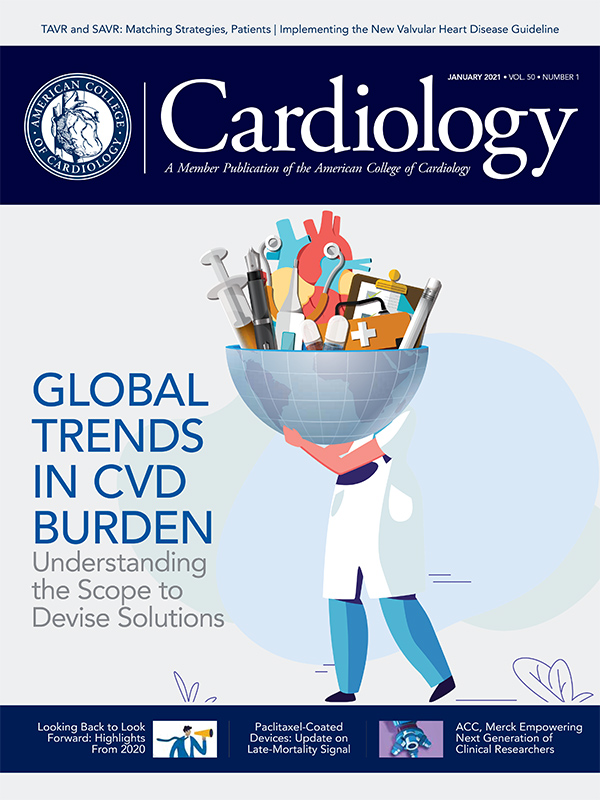JACC in a Flash
Featured topics and Editors' Picks from all of ACC's JACC Journals.

New Expert Consensus Decision Pathway Provides Checklist For Same-Day Discharge After PCI
A new ACC Expert Consensus Decision Pathway aims to address the uncertainty around same-day discharge after PCI and provides a checklist of clinical, social and facility/systems factors that clinicians can use to help determine whether a patient can be safely considered for same-day discharge.
The Pathway, published in the Journal of the American College of Cardiology, provides an overview of the evolution of PCI and resulting improvements in safety and efficacy that make it possible for same-day discharge to occur with select adult patients without observed increases in other complications, mortality and readmissions.
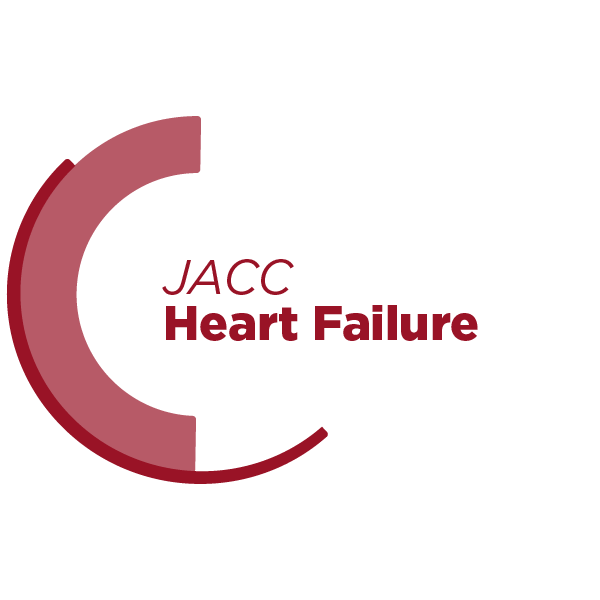
Are HF Patients Hospitalized With COVID-19 At Greater Risk of Death?
Nearly one in four heart failure patients hospitalized with COVID-19 die during hospitalization, based on findings from a study published in JACC: Heart Failure. Study authors note their results highlight the need for "targeted infection control measures and novel care pathways" in this high-risk group.
Ankeet S. Bhatt, MD, MBA, Karola S. Jering, MD, et al., analyzed data from 132,312 patients in the Premier Healthcare Database with at least one hospitalization for heart failure or two heart failure-related outpatient visits between Jan. 1, 2019 and March 31, 2020 and who were subsequently hospitalized between April and September 2020.
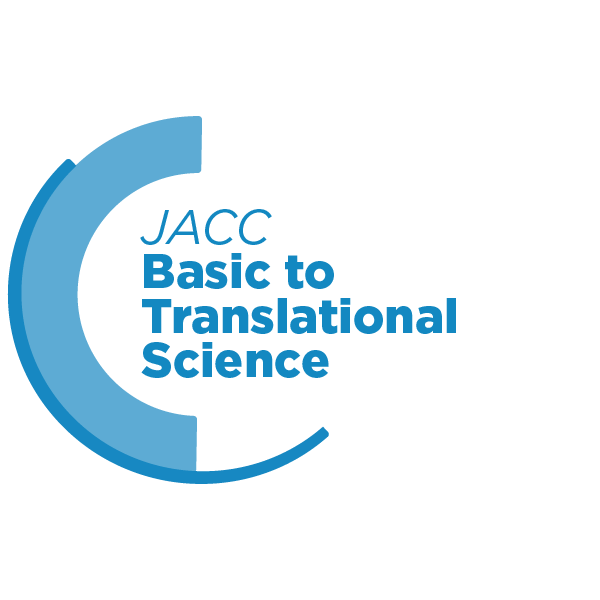
Does Increasing Female, Minority Mentors Increase Success and Diversity in Cardiology?
Efforts to increase the number and visibility of female and underrepresented minority cardiology mentors may have the potential to shift the demographics within the field of cardiology and lead to increased diversity and sex balance, according to a paper published Dec. 23 in JACC: Basic to Translational Science.
Islam Abudayyeh, MD, MPH, FACC, et al., conducted a survey of ACC cardiologists to assess career mentor activity and success, as well as identify the areas of greatest need. The survey was completed by 508 cardiologists. Questions focused on demographics, mentor experience, metrics of success, professional development and job satisfaction.
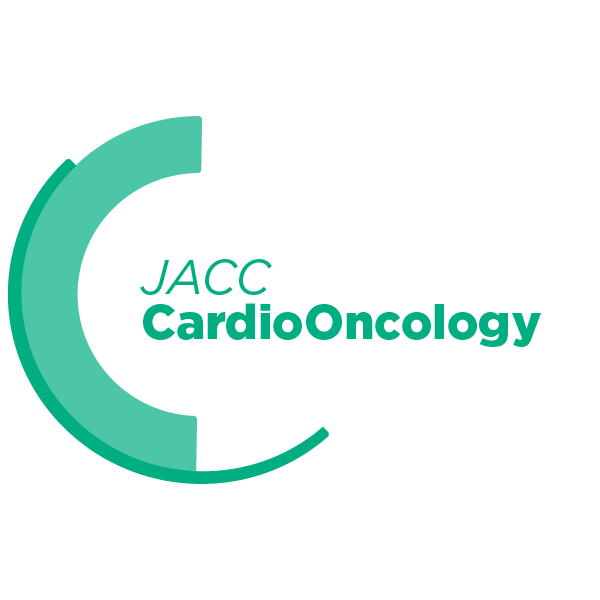
How is Cardio-Oncology Advancing in Japan?
Cancer and cardiovascular disease are the leading causes of death in Japan, a country with a rapidly increasing elderly population. While Japan has made progress in reducing cancer mortality, there has been an increase in the number of cancer survivors.
Consequently, Japan is seeing an increase in cardiovascular events related to cancer treatment. To address the growing field of cardio-oncology in Japan, Issei Komuro, MD, PhD, president of the Japanese Onco-Cardiology Society, published two perspectives Dec. 15 in JACC: CardioOncology.
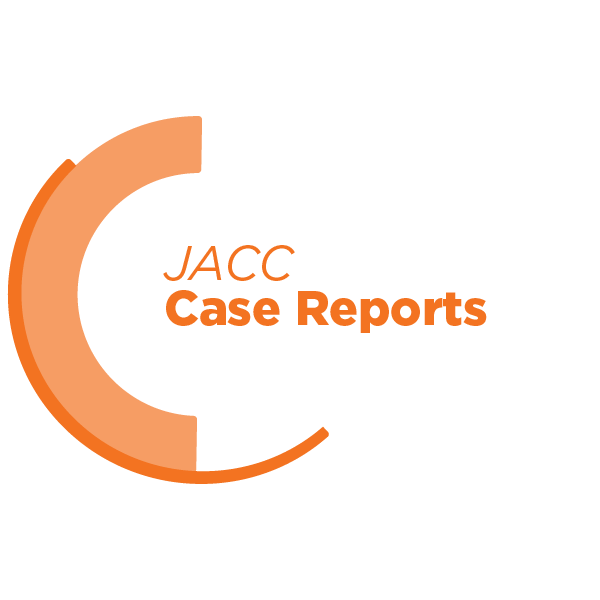
CTO PCI Techniques May Be Transferrable to Peripheral Vascular System
Techniques used in chronic total occlusion (CTO) PCI may be transferrable to the peripheral vascular system, according to a case published Dec. 16 in JACC: Case Reports.
Conor McQuillan, MBBCh, et al., describe a case of recanalization of an occluded radial artery that was dissected and reentered using CTO techniques before revascularization. The patient was a 71-year-old female referred for coronary angiography for angina. The patient had history of ischemic heart disease, diabetes and hypertension and was overweight. She previously had PCI via radial and femoral access and experienced femoral vascular complications.

Amyloidosis in Hospitalized HF Patients Associated With Higher Inpatient Mortality, 30-Day Readmissions
The presence of cardiac amyloidosis in patients hospitalized with heart failure (HF) may be associated with higher rates of inpatient mortality and 30-day readmissions, according to a study published Dec. 15 in JACC: CardioOncology.
Sameer Arora, MD, MPH, et al., reviewed 1,593,360 hospitalizations with a primary diagnosis of HF between 2010 and 2015. Of the patients hospitalized for HF, 2,846 (0.18%) had a secondary diagnosis of amyloidosis. These patients were then matched to 8,515 patients hospitalized for HF without amyloidosis. Of the matched patients, 63% were men and the median age was 75 years.

Is Home BP Monitoring the Best Approach For Diagnosing HTN?
One week of home blood pressure (BP) monitoring may be more reliable and more strongly associated with left ventricular mass index (LVMI) vs. office BP or ambulatory BP, suggesting that home BP monitoring may be the best approach for diagnosing hypertension and its associated risk of cardiovascular disease, according to a study published Dec. 14 in the Journal of the American College of Cardiology.
Joseph E. Schwartz, PhD, et al., sought to assess the reliability of office BP, home BP and ambulatory BP and evaluate their associations with LVMI in untreated patients in a community-based observational study. The 408 participants had their office BP assessed at three visits, and completed three weeks of home BP, two 24-h ambulatory BP recordings and a two-dimensional echocardiogram.
Clinical Topics: Arrhythmias and Clinical EP, Cardiovascular Care Team, Congenital Heart Disease and Pediatric Cardiology, COVID-19 Hub, Diabetes and Cardiometabolic Disease, Heart Failure and Cardiomyopathies, Invasive Cardiovascular Angiography and Intervention, Noninvasive Imaging, Prevention, Sports and Exercise Cardiology, Vascular Medicine, Atherosclerotic Disease (CAD/PAD), SCD/Ventricular Arrhythmias, CHD and Pediatrics and Arrhythmias, CHD and Pediatrics and Imaging, CHD and Pediatrics and Interventions, CHD and Pediatrics and Prevention, CHD and Pediatrics and Quality Improvement, Acute Heart Failure, Interventions and Coronary Artery Disease, Interventions and Imaging, Interventions and Vascular Medicine, Angiography, Echocardiography/Ultrasound, Nuclear Imaging, Exercise, Hypertension, Sports and Exercise and Congenital Heart Disease and Pediatric Cardiology, Sports and Exercise and Imaging
Keywords: ACC Publications, Cardiology Magazine, African Americans, Aging, Amyloidosis, Aorta, Blood Pressure, Benchmarking, Cancer Care Facilities, Cardiovascular Diseases, Catheters, Cardiology, Cause of Death, Checklist, Child, Preschool, Confidence Intervals, Contact Tracing, Coronary Angiography, Consensus, Coronary Artery Disease, Cost-Benefit Analysis, COVID-19, Decision Making, Delivery of Health Care, Diabetes Mellitus, Dissection, Dilatation, Early Diagnosis, Education, Medical, Epidemics, Follow-Up Studies, Heart Failure, Hispanic Americans, Hospital Mortality, Goals, Hospitalization, Housing, Hypertension, Hospitals, Infant, Infection Control, Inpatients, Job Satisfaction, Job Satisfaction, Insurance, Health, Kidney Diseases, Length of Stay, Logistic Models, Medical Oncology, Lung Diseases, Mentors, Myocardial Infarction, Myocardial Ischemia, Neoplasms, Nurses, Community Health, Nurses, Community Health, Obesity, Obesity, Morbid, Odds Ratio, Office Visits, Outpatients, Overweight, Overweight, Patient Discharge, Patient Discharge, Patient Readmission, Percutaneous Coronary Intervention, Personal Satisfaction, Peripheral Vascular Diseases, Prescriptions, Patient Navigation, Patient Navigation, Quality of Life, Registries, Registries, Radial Artery, Radial Artery, Salaries and Fringe Benefits, Reproducibility of Results, Sample Size, Social Isolation, Societies, Medical, Telemedicine, Uncertainty, Prevalence, Unemployment, Vaccines, Vulnerable Populations, Vulnerable Populations, Workflow, Writing, Adaptation, Physiological, Adolescent, Athletes, Attention, Body Fat Distribution, Bronchoalveolar Lavage, Cardiologists, Cardiopulmonary Resuscitation, Child, Cohort Studies, Communication, Control Groups, COVID-19, Critical Illness, Data Management, Death, Death, Sudden, Cardiac, Decision Making, Shared, Diabetes Mellitus, Type 2, Diagnostic Techniques and Procedures, Echocardiography, Electrocardiography, Electrophysiologic Techniques, Cardiac, Exercise, Extracellular Traps, Health Policy, Heart Disease Risk Factors, Inflammation, Internal Medicine, Intra-Abdominal Fat, Kidney, Leadership, Life Expectancy, Liver, Men, Metoprolol, Motivation, Muscle, Skeletal, Myocardium, Neutrophils, Obesity Management, Outcome Assessment, Health Care, Out-of-Hospital Cardiac Arrest, Pancreas, Patient-Centered Care, Phenotype, Pneumonia, Sports
< Back to Listings

